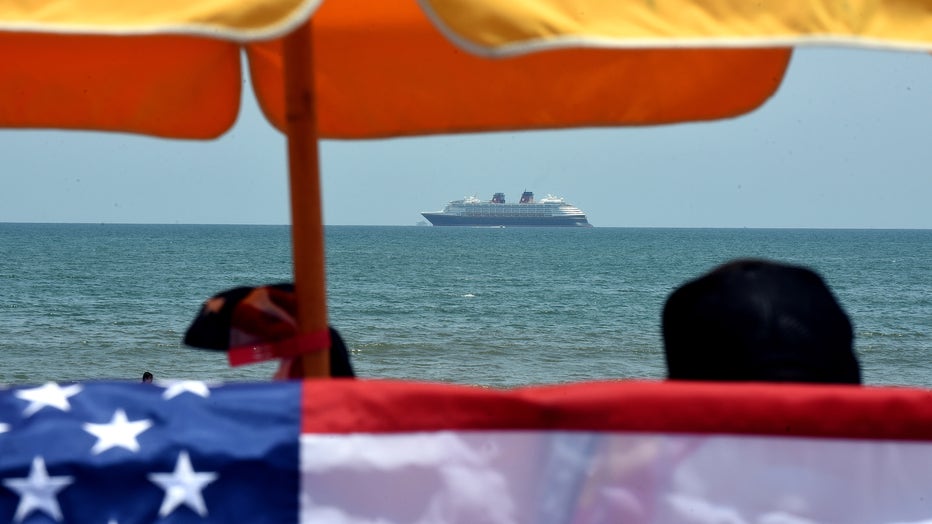CDC extends ban on cruise ships in US waters through September 30
LOS ANGELES - The Centers for Disease Control and Prevention announced on Thursday an extension on its ban on cruise ships in U.S. waters through Sept. 30, due to “ongoing” coronavirus outbreaks aboard ships.
Data from the CDC estimates a total of 2,973 coronavirus cases on cruise ships, in addition to 34 deaths from the period of March 1 through July 10, 2020.
“These data have also revealed a total of 99 outbreaks on 123 different cruise ships, meaning that 80% of ships within U.S. jurisdiction were affected by COVID-19 during this time frame,” the CDC said.
The current no-sail order will remain in effect until modifications are made to current CDC guidelines or Sept. 30, 2020.
The original ban was expected to expire on July 24.
According to the CDC statement, the Department of Health and Human Services (HHS) originally signed a “No Sail Order,” on March 14, 2020, in which it restricted the embarkation of passengers from ships impacted by coronavirus outbreaks.
The CDC said that it has worked to control the spread of the illness on those ships since the order was signed, adding that it expended an estimated 38,000 person-hours to slow the rate of infection.
Late last month, The Cruise Lines International Association announced that ships will not be sailing from U.S. ports throughout the summer. Along with the CDC’s extended ban on cruise ships in U.S. waters, the association said cruise lines have decided to voluntarily prolong the shutdown until Sept. 15 because they need time “to resolve barriers” with U.S. authorities to restart sailing.
“Although we are confident that future cruises will be healthy and safe, and will fully reflect the latest protective measures, we also feel that it is appropriate to err on the side of caution to help ensure the best interests of our passengers and crew members," the statement said.
The latest CDC announcement comes in the wake of rising coronavirus infections across dozens of states which threaten the U.S. financial sector, forcing businesses to close again and the economy to freeze up once again.

A Disney cruise ship is seen anchored off shore on Independence Day, July 4, 2020 in Cocoa Beach, Florida. Crowds at the beach were below normal for a holiday weekend due to the coronavirus pandemic and a spike in COVID-19 cases in Florida. Cruise sh
On June 14, The Miami Herald reported that at least 42,000 workers remained trapped on cruise ships without paychecks, and some still were suffering from COVID-19, three months after the industry shut down.
Cruise lines stopped sailing in mid-March after several high-profile outbreaks at sea. More than 600 people fell ill aboard Carnival Corp.’s Diamond Princess while it was quarantined off Japan, for example. Fourteen passengers died.
About 3,000 Carnival Cruise Line workers got off in Croatia earlier this month to catch rides and flights home across Europe. MSC Cruises has flown more than 1,000 Indian crew members home on charter flights from Europe and South America. Royal Caribbean also flew more than 1,200 Filipino crew members home last week from Greece, Dubai, the United States and Barbados, according to the Herald.
Several Caribbean countries haven’t allowed cruise ships to dock in their ports out of concerns that they would cause spikes in the number of coronavirus cases. Only Barbados has allowed for crew repatriation flights from its airports.
In May, Carnival Corp., the world’s largest cruise company, announced it will be laying off hundreds of employees due to the coronavirus pandemic.
The company’s CEO, Arnold Donald, said the combination of layoffs, furloughs and pay cuts were “necessary” as the pause on cruise travel continues.
The majority of affected employees in the U.S. will be in Florida, California and Washington state, Carnival Corp. said in an email. The company is eliminating 820 positions and furloughing 537 employees for up to six months in Florida out of a workforce of about 3,000 employees.
The Associated Press contributed to this report.

